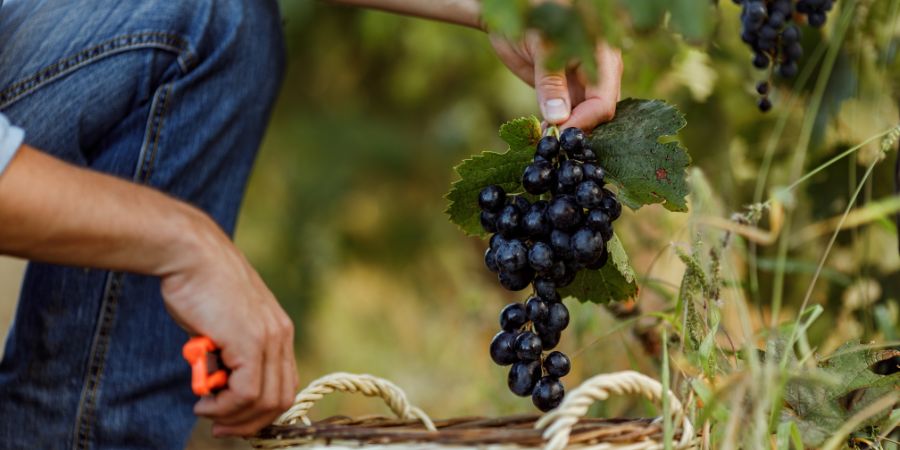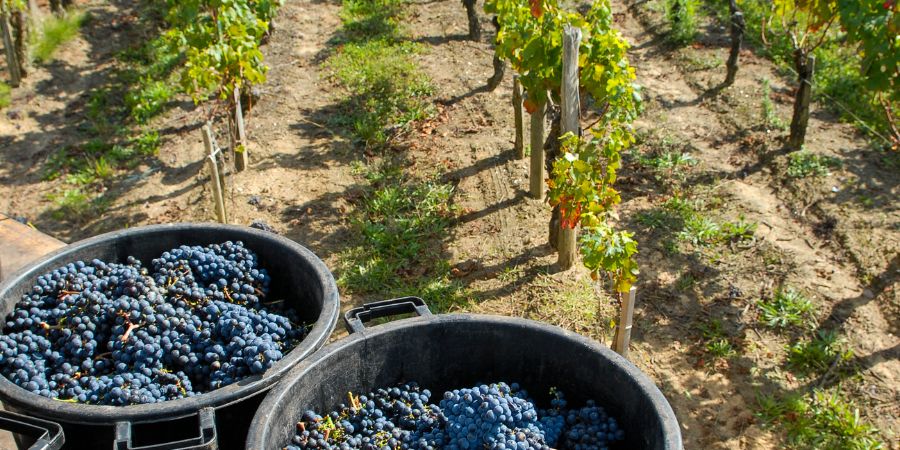Harvest time is the time of year when wineries come alive with the activity of gathering, crushing, and fermenting grapes. It’s an exciting and anticipatory season as vineyard owners and winemakers work relentlessly to produce their best wines.
However, in the midst of all the excitement and adrenaline, one critical factor is sometimes overlooked: accounting. For wineries to maximize their harvest season and ensure long-term profitability, effective financial management is critical.
Our objective at Protea Financial is to investigate the three pillars of harvest season optimization: planning and preparation, time management, and communication through teamwork. We also want to ensure you understand why appropriate accounting processes are critical during this hectic time. Grab a glass of your favorite vintage, sit back, relax, and let’s dive into the world of wine-making finance!
The Three Pillars of Optimizing Harvest Season
Planning and preparation help vineyards optimize harvest season. It’s crucial to organize activities, deadlines, and resources before the season starts. Winemakers may prioritize and distribute resources this way.
Time management is another harvest season efficiency factor. From grape picking to fermentation monitoring, time management is crucial. Setting realistic deadlines, using scheduling software or project management applications, and periodically monitoring work to find bottlenecks and opportunities for improvement are all part of this.
Optimizing harvest season activities requires communication and teamwork. Team members must communicate to agree on goals, expectations, and duties. Viticulture, cellar operations, and accounting teams might benefit from regular meetings.
Optimizing harvest season operations for vineyards requires good accounting. Accurate financial records must include even the smallest details, like tracking grapes, processing equipment maintenance fees, and personnel costs.
Winemakers can use these figures to make resource allocation, purchasing, and pricing choices. Wine business tax deductions are also available to some of them.
Proper bookkeeping enhances financial health, inventory monitoring, and cost analysis. Reconciling bank statements, classifying costs, integrating sales data with inventory systems, and handling accounts payable/receivable are key accounting tasks.
Investing in winery-specific cloud-based accounting software helps streamline these chores and ensure compliance. Winery operators that understand the importance of good accounting will benefit from optimal financial performance and simplified harvest operations.
Planning and Preparation
Wineries must plan and prepare for harvest ahead of time. Winemakers can see their businesses grow through proper planning and preparing techniques.
A complete harvest strategy should include activities, schedules, and resources. This involves deciding when to harvest each grape type based on maturity and weather. It must also consider logistics, including equipment availability, any type of transport requirements you have, and staffing needs.
Vineyard preparation is what follows next. Winemakers must prune, fertilize, and handle diseases and pests. Pre-inspection grape harvesting equipment and fermenting tanks to minimize surprises are also essential equipment to track and have on hand.
Every aspect of this step requires teamwork. Establish clear communication routes so everyone knows their roles and responsibilities. Regular meetings can resolve planning issues.
Additionally, contingency planning for weather and equipment failures is essential. Having backup options enables seamless functioning during difficult times.
Wineries optimize harvest season by planning and preparing. Winemakers may enhance productivity during this crucial period by planning carefully, preparing their vineyards and equipment, encouraging teamwork, and being flexible.
Time Management
When it comes to the busy harvest season for wineries, effective time management is crucial. With so many tasks and responsibilities to juggle, finding efficient ways to utilize your time can make a world of difference in optimizing operations.
- Establish Priorities: One key aspect of time management is prioritization. Identify the most important tasks that need to be completed and allocate your time accordingly. This will ensure that you focus on what truly matters and avoid getting overwhelmed by smaller, less significant tasks.
- Schedule Out Tasks: Another helpful strategy is creating a schedule or timetable for each day. By mapping out specific blocks of time for different activities, you can establish structure and prevent wasted minutes or hours. Stick to the schedule as much as possible but also remain flexible enough to accommodate unexpected situations or changes.
- Remove Distractions: Eliminating distractions is another essential component of effective time management. During harvest season, it’s easy to get sidetracked by phone calls, emails, or social media notifications. Consider designating specific times during the day for checking messages and limiting unnecessary interruptions while working on critical tasks.
- Ensure Team Members Collaborate: Collaboration with team members can also enhance productivity and save valuable time. Delegate responsibilities appropriately and communicate clearly about expectations and deadlines. Effective teamwork ensures that everyone is working towards a common goal without duplicating efforts.
By implementing these strategies for managing your precious time during harvest season, you’ll find yourself more organized, focused, and efficient in completing all necessary tasks – ultimately leading to a successful wine production process!
Communication and Collaboration
Wineries need communication and teamwork to make the most of harvest time. Effective communication ensures that everyone works toward common goals. It streamlines collaboration between teams and departments, avoiding delays.
Communication opens up ideas and collaboration. Team members may discuss ideas and solve problems, which fosters creativity. Collaboration also fosters company solidarity and camaraderie.
Wineries should hold regular meetings or huddles to communicate information, debate difficulties, and find solutions during harvest season. These meetings allow participants to discuss progress, resolve concerns, and make improvements.
Effective communication requires real-time information sharing technologies. Team members may access important data from anywhere using cloud-based platforms or project management tools. This helps harvest crews coordinate.
Encouraging input from all levels of the company promotes open communication. Everyone’s opinion matters. Wineries may leverage their employees’ collective intelligence by actively seeking varied ideas and promoting productive debate. Wineries optimize harvest processes through communication.
Wineries may improve productivity, reduce mistakes, and succeed during this crucial moment by embracing open communication, teamwork, and technology. Effective communication fosters successful cooperation!

Proper Accounting Practices are Essential to Optimize Harvest Season
Wineries can make the most of harvest season with good accounting. During this hectic time, reliable financial records and an orderly tracking system are vital.
Tracking your costs separately is essential to accounting. Wineries spend money on personnel, equipment, and raw materials during harvest. Wineries may comprehend their cash flow and budget allocation by precisely tracking these expenditures.
Proper accounting includes spending tracking and inventory management. Harvesting grapes and other resources requires correct accounting. Winemakers avoid shortages and waste by keeping precise inventory records.
To optimize your business during harvest season, wineries must have excellent financial controls. Internal checks and balances prevent mistakes and fraud. Regular reconciliations between bank accounts, sales records, and vendor invoices help you spot inconsistencies before they grow into significant problems.
Winery accounting software may expedite harvest season activities. These platforms include automatic data entry from vineyard management systems, configurable reporting for the wine sector, and interaction with sales and marketing.
Wineries need good accounting practices in place to maximize their harvest seasons. Wineries often run more smoothly and make smart financial decisions by tracking spending, managing inventories, creating solid financial controls, and using specialized software.
Winery operators should focus on making great wines and giving customers unique experiences by prioritizing accountancy during this difficult season. Proper accounting throughout harvest season is crucial to success!
Strategic Inventory Management: The Hidden Key to Harvest Season Success
While harvest season is the pinnacle of a winery’s year, with the bustling activity of gathering and processing grapes, one crucial element often flies under the radar: inventory management. Beyond just tracking grape yields, it’s essential to keep a detailed record of all materials, from fermenting tanks to bottling supplies. This meticulous attention ensures that you’re not just focused on the grapes themselves but on the entire production pipeline. By accurately tracking inventory, wineries can prevent shortages that could stall production and avoid overstocking, which ties up capital that could be better spent elsewhere.
In addition to inventory, the timing of purchases plays a critical role in optimizing harvest season profitability. It’s not just about buying what you need but buying smart. By analyzing historical data and market trends, wineries can forecast the best times to purchase supplies at lower costs, ensuring they aren’t caught off guard by price spikes during peak season. This strategic purchasing approach not only cuts costs but also enhances cash flow, allowing wineries to invest more in areas like marketing or expanding production capabilities.
These nuanced aspects of inventory management and purchasing strategies, when combined with effective financial planning, can significantly enhance a winery’s ability to navigate the complexities of harvest season, leading to better wines and a stronger bottom line.
When You Wan to Get Ready for Harvest Season, Contact Protea Financial
Wineries must optimize harvest season to succeed. Wineries may improve their bottom line by following good accounting standards.
Proper accounting streamlines harvest operations. It gives vineyard owners a realistic financial picture to help them make resource allocation, budgeting, purchasing, and sales choices. Winemakers may maximize profits by tracking expenses, sales, inventory, and pricing structures.
Protea Financial understands winery harvest issues. We have vast expertise providing customized accounting services to wine sector clients. We handle bookkeeping, tax preparation, financial analysis, and inventory management. Contact us today to see how we can help your business!




